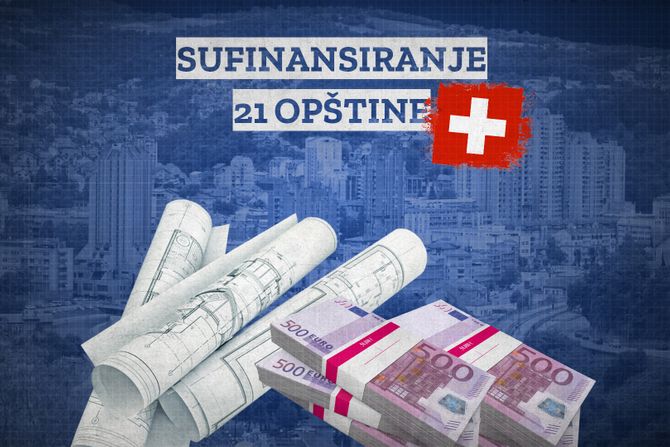
The Swiss donating 150,000 francs, but only 21 municipalities apply to take the money!
For a year and four months, municipalities in Serbia have had a legal obligation to involve citizens in deciding how to spend money from the investment part of the budget, which mainly comes from the property tax.
Now, the Swiss government's "Property Tax Reform" program will co-finance 21 local governments in Serbia in the amount of 150,000 francs set aside for projects that enable citizen involvement in deciding how to spend the said funds.
"We invited 41 local self-governments, and 21 of them applied, with the plan that together with the citizens they would do something to improve the municipalities and cities in which they live. So far, there have been examples of funding projects voted on by citizens, but there haven't been any formally adopted programs that involve the joint work of local self-governments and citizens for some public good," Doctor Branislav Milic, an expert on the Swiss property tax reform program, told us.
Some of the municipalities that applied want to implement a model of direct citizen participation, where informal citizen groups would propose projects but also participate in funding through volunteer work, while others would work on gender and minority responsible projects.
Practice has shown, however, that municipalities are prepared to implement this legal obligation but are not sure how. On the other hand, research done by the Swiss program team has shown that citizens are not interested in getting involved in the decision making. In addition, those who are don't trust that the municipalities will indeed implement and fulfill what has been agreed.
Uzice as an example of good practice
By comparison, in Switzerland, this has been regulated by the constitution for the last 100 years.
"It takes time for people to get used to being able to participate in such important decisions and for the municipality to do what they had voted on. The aim of the program is to encourage municipalities to apply," says Milic.
He cited the City of Uzice as a good example, which has met the demands of citizens' associations and when there wasn't enough money, they relied on the work of volunteers that was counted as money. They were also able to provide funding and co-financing, and to give citizens what they actually wanted and felt they needed in their neighborhoods.
(Vesna Bjelic/v.bjelic@telegraf.rs)
Video: Ogromna količina padavina alarmirala sve službe u Kladovu
Telegraf.rs zadržava sva prava nad sadržajem. Za preuzimanje sadržaja pogledajte uputstva na stranici Uslovi korišćenja.

